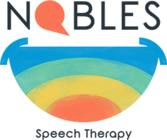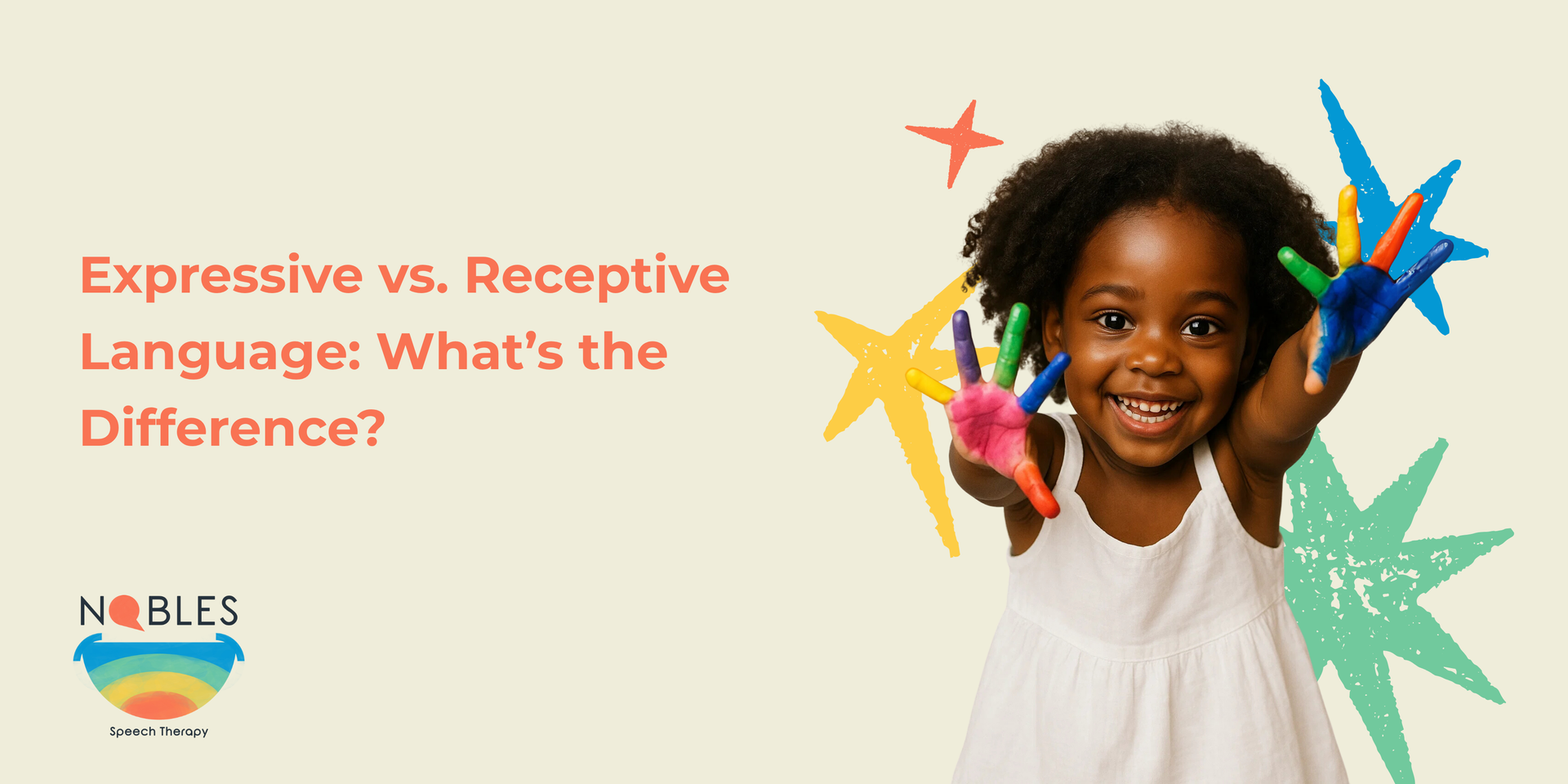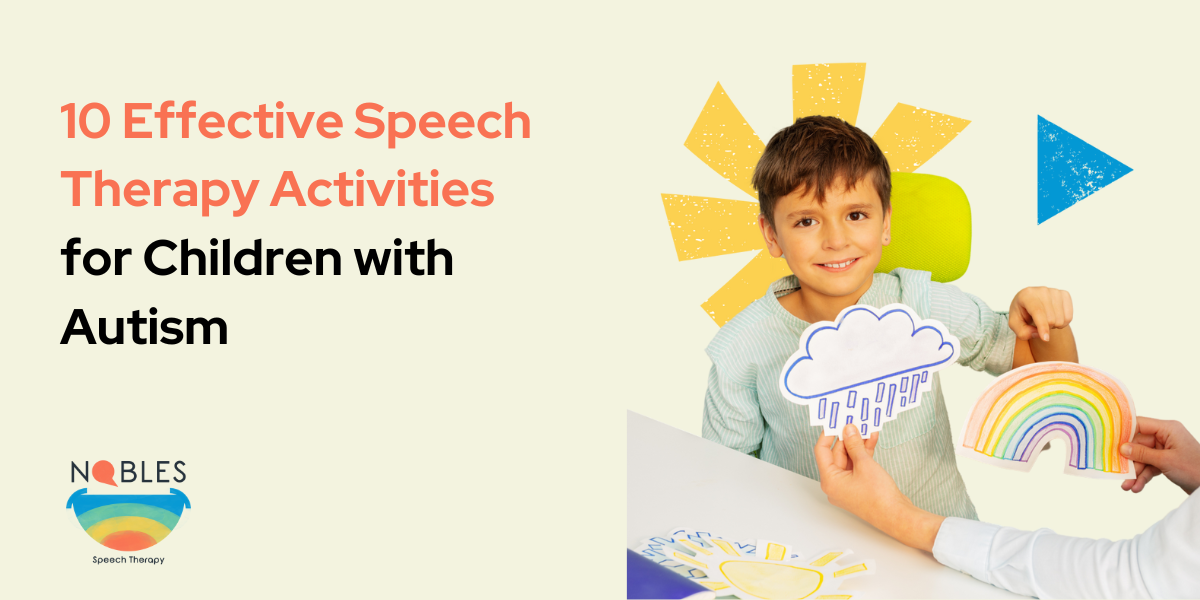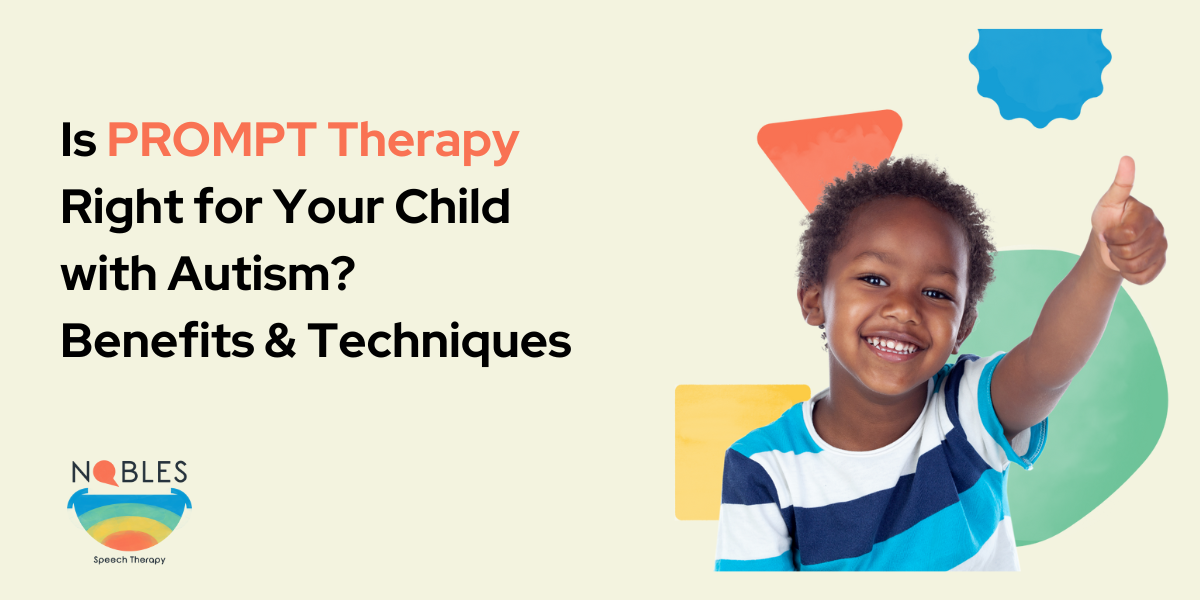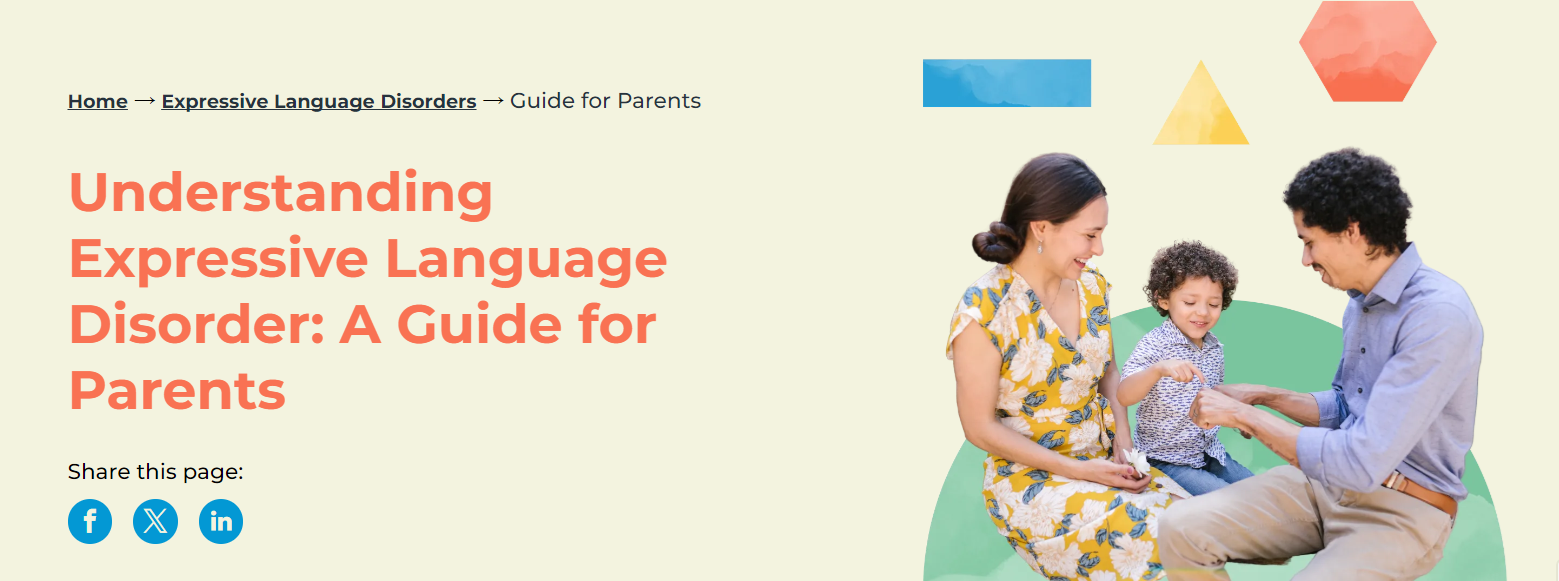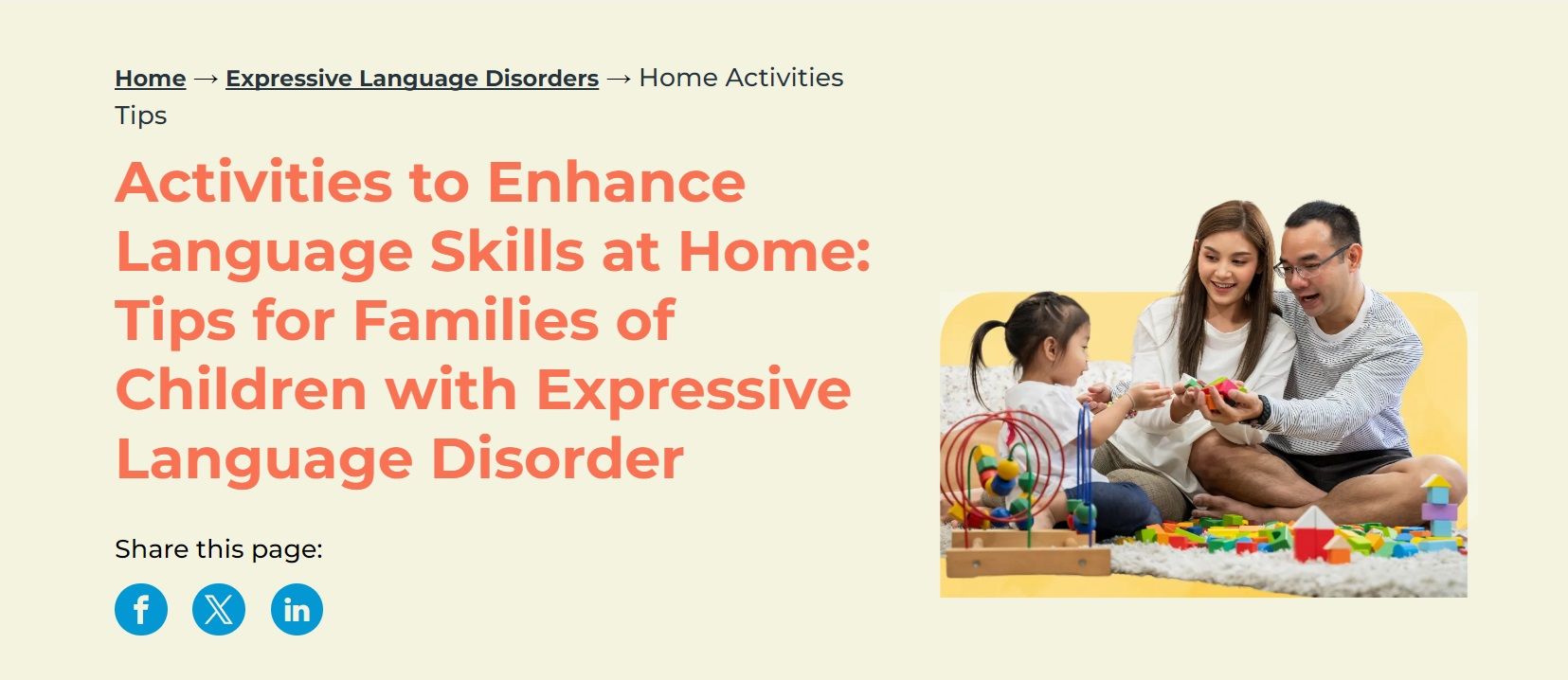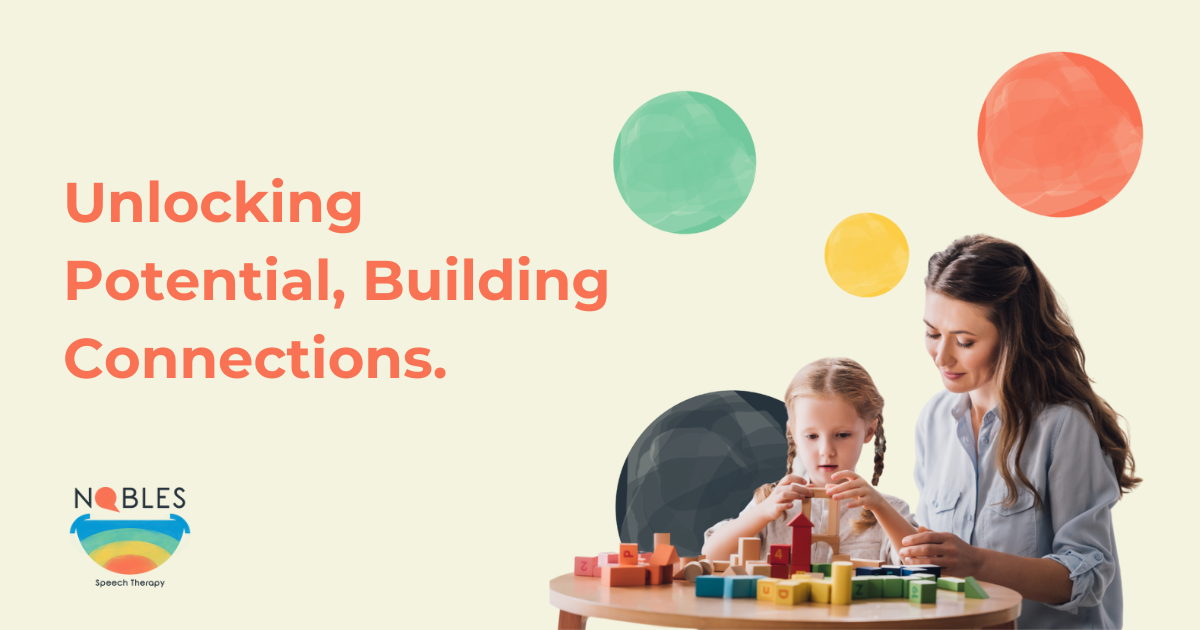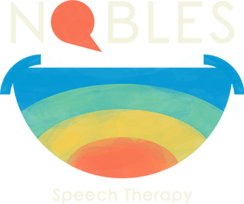We accept CareFirst BlueCross BlueShield, United Health Care, Wellpoint, Maryland Physician Care Insurance, and Kaiser Permanente.
A Fun Way to Improve Your Child's Language Skills
Speech Therapy for Ages 1-18
Share this page:
When you think about language, you may first think about English, Spanish, Arabic, or even Portuguese or Bengali, systems of communications used by a particular country or community. But when discussing language disorders, we are talking about language as the principal method of human communication.
Language
is how we use speech, writing, or gestures to express thoughts, feelings, needs, or wants. When a child has an
expressive language disorder, they have difficulty using language to communicate with others.
If a child has not learned to use the language regularly, they may need help communicating effectively. Speech therapy can help your child express themselves clearly by teaching them techniques to improve their use of words, sentences, and grammar.
Discover Effective Strategies for Supporting Your Child with Verbal Dyspraxia
Speech Therapy for Children with Expressive Language Disorder
Connecting Thoughts with Words
Having an expressive language disorder is not related to how intelligent your child is; instead, it means they have difficulty
expressing their thoughts with language and communicating with others. As a result, they may have trouble answering questions or finding the right words to make their needs understood or get their point across.
Feeling Frustrated?
Even adults can feel frustrated when their message isn't getting across. For children, who are learning to deal with their feelings and emotions, being misunderstood can be even more upsetting. When a child has trouble putting together their thoughts with the right words or organizing words into sentences, it can cause a meltdown. It can also be harder for them to get along with other kids.
It Takes a Village
When your child is struggling to communicate, you may not know what to do. You may not even be sure there is an issue, but you have the feeling that something is not quite right. As a parent, you might feel pressured to have all the answers, but no one has all the answers in reality. However, there are people with the expertise to help you.
Language Therapy Can Help
A child speech-language pathologist (SLP) specializes in evaluating and treating children who have difficultly expressing language. An SLP can help you to understand your child's expressive communication issues and provide practical solutions.
Through therapy, your child can learn to express themselves, improving their self-esteem and social skills.
Share this page:
What Is Expressive Language Disorder?
There are two main categories of language disorders in children, expressive and receptive.
An expressive language disorder is when a child has problems getting their meaning or message across to others.
These expressive and receptive disorders can overlap, and you may also hear these referred to as
spoken language disorders, written language disorders, or specific language impairments.
Signs of an Expressive Language Disorder
Children with this disorder has difficulty:
- Answering Wh-questions (e.g., Who, what, where, etc.)
- Expressing wants and needs to adults
- Telling about ideas, events, stories, or thoughts
- Using many vocabulary words
- Formulating grammatically complete phrases and sentences
What Are the Treatment Goals?
How to help a child with an expressive language disorder? Expressive language disorder treatment may change depending on the child's age and the cause and severity.
After proper assessment and diagnosis, we provide treatment plans customized to meet your child's specific needs. Then, through fun and effective one-on-one sessions, we will work with your child to improve their communication skills and help them reach their full potential.
The goals for treatment are to:
- Help using words, phrases, sentences to communicate wants, feelings, and thoughts; and
- Improve grammar, vocabulary, and formulate complete sentences.
Early treatment can often prevent the social, learning, and emotional consequences of poor communication skills. In addition, because language is the key to communicating with others, any improvements to a child's communication skills can have a positive, long-lasting effect on their future.
How Can Expressive Language Therapy Help?
The role of a speech-language pathologist is to test, diagnose and treat a wide range of speech, voice, and language disorders. Correctly diagnosing an expressive language disorder can be difficult. The symptoms often overlap with other disorders, differ in severity, or confuse other developmental issues and disorders, like autism.
As certified pediatric speech pathologists, we're qualified to diagnose a wide range of disorders to ensure that your child receives the most effective treatment for their needs, improving the quality of life for the child and their family.
Why Choose Us For Expressive Language Speech Therapy
Built Around Your Child
We implement successive building blocks to help your child master foundational communication skills based upon the initial assessment.
Each week your child builds confidence for interpersonal interactions, more outgoing social engagements, and sustained academic achievement.
Exciting and Fun
Creative teaching techniques combined with patience, understanding, and an authentic rapport with your child create a safe space for overcoming insecurities and learning new skills.
These enjoyable one-on-one sessions transform reluctant attendance into an enthusiastic engagement.
Team Effort
We understand that it takes a village to raise a child. That's why we coordinate our strategy with your school and other providers. We also keep you actively involved with weekly updates and materials for at-home practice and reinforcement.
How Expressive Language Speech Therapy Works
Step 1. Schedule Initial Consultation
We'll have a brief call to discuss your concerns about your child's communications skills, developmental milestones, red flags, and other areas of assessment.
Step 2. Assessment
We evaluate your child to industry-standard speech and language development benchmarks. Based on the results, we create a step-by-step treatment plan built around your child's needs.
Step 3. Treatment
We implement the treatment plan in series of fun, 30-minute one-on-one in-person or virtual sessions with your child. You'll receive updates after each session with supplemental materials for practice and reinforcement.
Step 4. Results
You'll experience the joy of watching your child's confidence, interpersonal interactions, and communication transform as building blocks are mastered throughout the treatment plan.
The Path to a Brighter Future
If you're concerned about your child's language skills, don't wait any longer for an assessment and therapy.
Please take the next step today and contact us for your confidential consultation.
Share this page:
What are examples of language disorders?
When someone has a disorder, not due to their speech or voice, their use of language to communicate falls into the category of a language disorder.
Two examples of language disorders are:
- Aphasia is when a child has difficulty understanding or speaking parts of language due to their brain works.
- Auditory processing disorder occurs when a child has difficulty understanding the meaning of the sounds that the ear sends to the brain.
What are the symptoms of Expressive Language Disorder?
If your child has problems using language to express what they are thinking or need, they may have an expressive language disorder. Specific signs to look for include:
Difficulty putting words into correct sentences
Having a hard time telling stories, ideas, or thoughts
Using "um" or "ah" frequently
Leaving words out of sentences when speaking
Having a small vocabulary, using the same words repeatedly
Due to their language problems, a child may have behavior issues or experience difficulty with social settings.
Will my child outgrow Expressive Language Disorder?
The outcome depends on the cause of the language disorder and differs on a case-by-case basis. Some language disorders are more treatable than others, but speech and language therapy is the recommended treatment in almost all cases.
How do you teach a child with Expressive Language Disorder?
Patience, repetition, and encouragement can go a long way. A child with an expressive language disorder needs to have correct word forms, grammar, and sentence structures modeled. It is often helpful to teach them "pre-planning" skills to outline what they want to express before speaking or writing. It also is essential to let the child take their time when talking to lower frustration.
Does expressive language delay mean autism?
An expressive language delay does not mean autism; it is a separate disorder. However,
children with autism can often have a language disorder, as can children with hearing issues or learning disabilities.
Related Topics:

